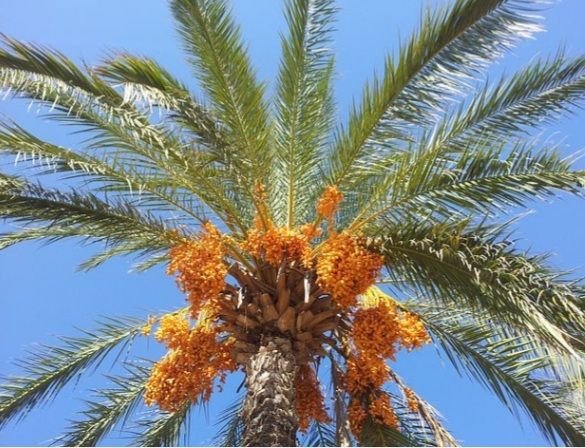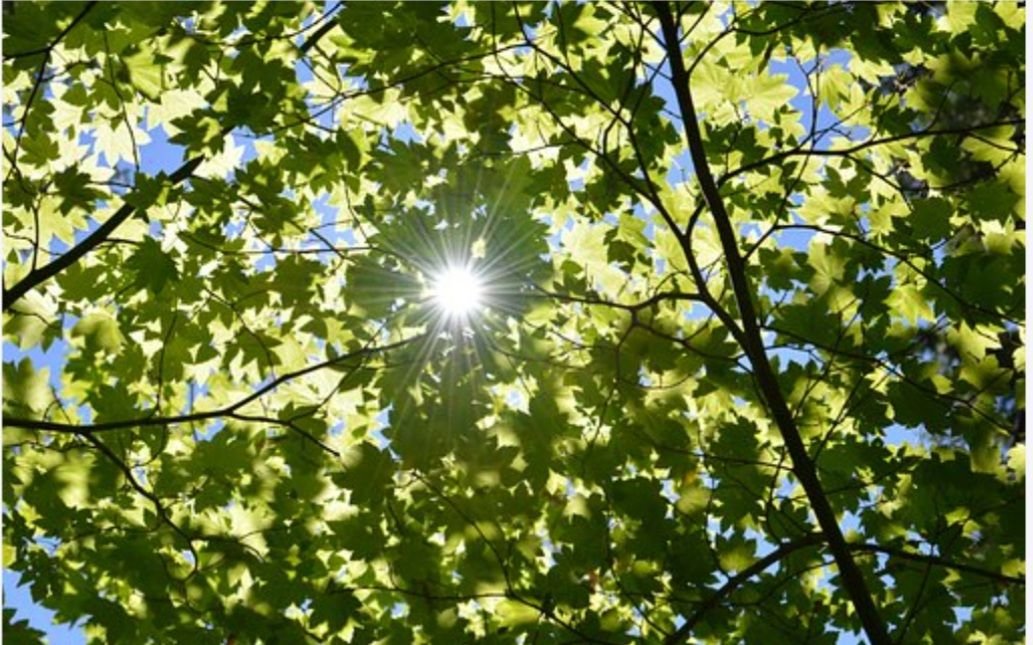In The Name of Allah, The Most Merciful, The Bestower of Mercy.
Al-Allamah Rabee Bin Hadi Al-Mad’khali, may Allah preserve him, continued…
Due to his profound happiness at this repentance and his deep appreciation for this blessing, he emphasised that through the behaviour of one who is grateful for Allah’s blessings upon him, thus he said: “O Allah’s Messenger! Because of the acceptance of my repentance I will give up all my wealth as alms for the Sake of Allah and His Messenger”. The enticing wealth that was one of the reasons behind him not participating in Jihad serves as further evidence of the sincerity of his repentance and his diligence in that. Then Allah’s Messenger- the compassionate and merciful, advised him to retain a portion of his wealth. So, what did he do? He relinquished his wealth at Madinah, which withheld him from participating in military expedition in the path of Allah, while he retained the better part of that distant wealth (acquired at Khaybar), which perhaps had no connection to withholding him from Jihad. He expressed a strong reason for his salvation, which – in his view- was solely one reason that saved him from utter destruction. He stated, “O Messenger of Allah, indeed Allah saved me for telling the truth; so it is a part of my repentance not to tell but the truth as long as I am alive”. By Allah Grace in fulfilling what he promised to the Messenger, peace be upon him, and in what kab saw as essential to his repentance to this day, it is the best of what he has stated: “By Allah, I do not know anyone of the Muslims whom Allah has helped to speak the truth more than me. Since I have mentioned that truth to Allah’s Messenger till today, I have never intended to tell a lie”.
What (an exemplary example regarding) fear of Allah (associated) with truthfulness and the nobility of the truthful ones that is stand in stark contrast to the (behaviour) of the liars, and a decisive (proof) against the liars in every era and place. How can not be the case when it (lying) is one of the greatest call to disbelief and hypocrisy, and its least (harmful) circumstance is that it is one of the stations of hypocrisy, may Allah protect us from it and from all that displeases Him. Then he spoke about this blessing which Allah bestowed upon: “”By Allah, I do not know anyone of the Muslims whom Allah has helped to speak the truth more than me. Since I have mentioned that truth to Allah’s Messenger till today, I have never intended to tell a lie. I hope that Allah will also save me (from telling lies) the rest of my life”. Then Allah revealed to His Messenger:
وَعَلَى الثَّلَاثَةِ الَّذِينَ خُلِّفُوا حَتَّىٰ إِذَا ضَاقَتْ عَلَيْهِمُ الْأَرْضُ بِمَا رَحُبَتْ وَضَاقَتْ عَلَيْهِمْ أَنفُسُهُمْ وَظَنُّوا أَن لَّا مَلْجَأَ مِنَ اللَّهِ إِلَّا إِلَيْهِ ثُمَّ تَابَ عَلَيْهِمْ لِيَتُوبُوا ۚ إِنَّ اللَّهَ هُوَ التَّوَّابُ الرَّحِيمُ
يَا أَيُّهَا الَّذِينَ آمَنُوا اتَّقُوا اللَّهَ وَكُونُوا مَعَ الصَّادِقِينَ
And (He did forgive also) the three [who did not join the Tabuk expedition (whom the Prophet SAW)] left (i.e. he did not give his judgement in their case, and their case was suspended for Allah’s Decision) till for them the earth, vast as it is, was straitened and their ownselves were straitened to them, and they perceived that there is no fleeing from Allah, and no refuge but with Him. Then, He accepted their repentance, that they might repent (unto Him). Verily, Allah is the One Who accepts repentance, Most Merciful. O you who believe! Be afraid of Allah, and be with those who are true (in words and deeds). [Al-Tawbah 118-119]
Kab said: By Allah, Allah has never bestowed upon me, apart from His guiding me to Islam, a Greater blessing than the fact that I did not tell a lie to Allah’s Messenger which would have caused me to perish as those who have told a lie perished, for Allah described those who told lies with the worst description He ever attributed to anybody else. Allah said:
سَيَحْلِفُونَ بِاللَّهِ لَكُمْ إِذَا انقَلَبْتُمْ إِلَيْهِمْ لِتُعْرِضُوا عَنْهُمْ ۖ فَأَعْرِضُوا عَنْهُمْ ۖ إِنَّهُمْ رِجْسٌ ۖ وَمَأْوَاهُمْ جَهَنَّمُ جَزَاءً بِمَا كَانُوا يَكْسِبُونَ
يَحْلِفُونَ لَكُمْ لِتَرْضَوْا عَنْهُمْ ۖ فَإِن تَرْضَوْا عَنْهُمْ فَإِنَّ اللَّهَ لَا يَرْضَىٰ عَنِ الْقَوْمِ الْفَاسِقِينَ
They will swear by Allah to you (Muslims) when you return to them, that you may turn away from them. So turn away from them. Surely, they are Rijsun [i.e. Najasun (impure) because of their evil deeds], and Hell is their dwelling place, – a recompense for that which they used to earn. They (the hypocrites) swear to you (Muslims) that you may be pleased with them, but if you are pleased with them, certainly Allah is not pleased with the people who are Al-Fasiqun (rebellious, disobedient to Allah). [al-Tawbah 95-96]
This is the outcome for the liars, even if their lie was flattery and excuses. The forgiveness sought by the Messenger for them did not benefit them in anything in their lives nor after their deaths. Allah said:
اسْتَغْفِرْ لَهُمْ أَوْ لَا تَسْتَغْفِرْ لَهُمْ إِن تَسْتَغْفِرْ لَهُمْ سَبْعِينَ مَرَّةً فَلَن يَغْفِرَ اللَّهُ لَهُمْ ۚ ذَٰلِكَ بِأَنَّهُمْ كَفَرُوا بِاللَّهِ وَرَسُولِهِ
Whether you (O Muhammad) ask forgiveness for them (hypocrites) or ask not forgiveness for them, (and even) if you ask seventy times for their forgiveness, Allah will not forgive them. [al-Tawbah 80]
[فَمَا تَنفَعُهُمْ شَفَاعَةُ الشَّافِعِينَ – So no intercession of intercessors will be of any use to them. [Al-Mud-dath-thir 48]
There is a mighty moral lesson here for those who do not purify themselves through monotheism, Iman, truthfulness, and good deeds. Among those deceitful liars, some may have believed that their lies and trickery will lead to the Prophet’s forgiveness and mercy, saving them from Allah wrath and humiliation in this life and the hereafter. However, Allah has shattered their hopes and humiliated them in this worldly life and the Hereafter. The Prophet’s intercession did not benefited them at all. The Qur’an made this reality clear in in Surah al-Tawbah and other than it, and the Prophet emphasised through his statement to the Quraysh, addressing each clan and individual: “Redeem yourselves from Allah; I cannot protect you from Him in any way.”
Liars should be cautious at all times and in all places with regards to their Iman, beliefs, statements, and testimonies, as this lying may lead them to the abyss of destruction that has engulfed those liars before them.
And there is a lesson and good news for those who are truthful in their Iman, Islam, good deeds, statements, and testimonies, regarding salvation from destruction, as Kab and his companions, may Allah be pleased with them, attained salvation through truthfulness in a situation that tempted those with weak Iman and souls to lie. Allah said:
هذا يَوْمَ يَنْفَعُ الصَّادِقِينَ صِدْقُهُمْ لَهُمْ جنات الخري من تحتها الأنهار خالدين فيها أبدا رضي الله عنهمْ وَرَضُوا عَنْهُ ذَلِكَ الْفَوْزُ الْعَظِيمُ .
This is a Day on which the truthful will profit from their truth: theirs are Gardens under which rivers flow (in Paradise) – they shall abide therein forever. Allah is pleased with them and they with Him. That is the great success (Paradise). [Al-Ma’idah 119]
Narrated Talha bin Ubaidullah, may Allah be pleased with him: A man from Najd with unkempt hair came to Allah’s Messenger, peace and blessings of Allah be upon him, and we heard his loud voice but could not understand what he was saying, till he came near and then we came to know that he was asking about Islam. Allah’s Messenger said, “You have to offer prayers perfectly five times in a day and night (24 hours).” The man asked, “Is there any more (prayers)?” Allah’s Messenger replied, “No, but if you want to offer the Nawafil prayers (you can).” Allah’s Messenger further said to him: “You have to observe fasts during the month of Ramadan.” The man asked, “Is there any more fasting?” Allah’s Messenger replied, “No, but if you want to observe the Nawafil fasts (you can.)” Then Allah’s Messenger further said to him, “You have to pay the Zakat (obligatory charity).” The man asked, “Is there any thing other than the Zakat for me to pay?” Allah’s Messenger replied, “No, unless you want to give alms of your own.” And then that man retreated saying, “By Allah! I will neither do less nor more than this.” Allah’s Messenger said, “If what he said is true, then he will be successful (i.e. he will be granted Paradise).” [Al-Bukhari 46]
It is reported in Sahih Muslim on the authority of Anas Ibn Malik, may Allah be pleased with him, who said: We were forbidden that we should ask anything (without the genuine need) from the Holy Prophet. It, therefore, pleased us that an intelligent person from the dwellers of the desert should come and asked him (the Prophet) and we should listen to it. A man from the dwellers of the desert came and said: “Muhammad, your messenger came to us and told us your assertion that verily Allah had sent you (as a prophet)”. He (the Prophet) said: “He told the truth”. He (the bedouin) said: “Who created the heaven?” He (the Prophet) replied: “Allah”. He (the bedouin again) said: “Who created the earth?” He (the Prophet) replied: “Allah”. He (the bedouin again) said: “Who raised these mountains and who created in them whatever is created there?” He (the Prophet) replied: “Allah”. Upon this he (the bedouin) remarked: “By Him Who created the heaven and created the earth and raised mountains thereupon, has Allah (in fact) sent you?” He (the Prophet) said: “Yes”. He (the bedouin) said: “Your messenger also told us that five prayers (had been made) obligatory for us during the day and the night”. He (the Prophet) remarked: “He told you the truth”. He (the bedouin) said: “By Him Who sent you, is it Allah Who ordered you about this (i. e. prayers)?” He (the Prophet) said: “Yes”. He (the bedouin) said: “Your messenger told us that Zakat had been made obligatory in our riches”. He (the Prophet) said. “He has told the truth”. He (the bedouin) said: “By Him Who sent you (as a prophet), is it Allah Who ordered you about it (Zakat)?” He (the Prophet) said: “Yes”. He (the bedouin) said: “Your messenger told us that it had been made obligatory for us to fast every year during the month of Ramadan”. He (the Prophet) said: “He has told the truth”. He (the bedouin) said: “By Him Who sent you (as a prophet), is it Allah Who ordered you about it (the fasts of Ramadan)?” He (the Prophet) said: “Yes”. He (the bedouin) said: “Your messenger also told us that pilgrimage (Hajj) to the House (of Ka’bah) had been made obligatory for him who is able to undertake the journey to it”. He (the Prophet) said: “Yes”. The narrator said that he (the bedouin) set off (at the conclusion of this answer, but at the time of his departure) remarked: “By Him Who sent you with the Truth, I would neither make any addition to them nor would I diminish anything out of them”. Upon this the Prophet remarked: “If he were true (to what he said) he must enter Paradise”. [Sahih Muslim 12]
These two intelligent questioners have been blessed by Allah with the gift of sound intellect, insight, and the ability to ask good questions, especially the latter of the two. It is said that he is Dhaman ibn Thalabah al-Hudhali. The first one asked Allah’s Messenger about the tenets of Islam, and the Prophet responded with what Allah has commanded His servants regarding the pillars of this religion after the two testimonies of faith, as the questioner appeared to be a Muslim. Thus, he was informed that Islam consists of these obligations.
The questioner acknowledged this and committed to it because he wanted to know if there is anything additional he must do beyond what he has mentioned regarding these pillars. The Messenger of Allah, peace and blessings of Allah be upon him, told him that there is nothing more required unless he chooses to perform voluntary acts. When the Prophet distinguished between obligatory acts and voluntary ones, the individual swore by Allah that he would neither add to nor subtract from those obligations. The Messenger of Allah, peace and blessings of Allah be upon him, responded by giving him and the Ummah glad tidings of great rewards for those who fulfill these obligations properly: “He will succeed if he is truthful,” meaning that his actions must align with his words. His success is contingent upon his honesty in both speech and action, and he is blessed for that..
The second questioner had a deeper and broader question than the first. Muhammad Ibn Ismail al-Asfahani al-Salafi, the author of “at-Tareer” said: “This is from fine manner of asking questions by this man’s and the elegance of its structure. He first sought confirmation of the truthfulness of the messenger sent by the Messenger, peace and blessings of Allah be upon him, to invite them to Islam, asking if he was indeed sent by Allah. The Prophet affirmed this. Then, he asked about the Creator of the heavens and the earth and who established the mountains, as he, like other Arabs, believed in the oneness of Allah’s Lordship.
The Messenger of Allah, peace and blessings of Allah be upon him, responded by saying: “Allah, Allah, Allah” in all of that. He then confirmed everything that the messenger of Allah’s Messenger conveyed to them regarding the religious acts of Islam, including prayer, almsgiving, and fasting, while the Messenger affirmed: “He (i.e. the one I sent to convey the message) spoke the truth, spoke the truth”, and so on. When the Messenger of Allah finished answering the man’s questions, the man said: “By the One who sent you with the truth, I will neither add to them nor take away from them.” The Messenger of Allah said: “If he is truthful, he will enter Paradise.”
Verily the fruits of truthfulness are great for the truthful person; the one trutrhful in belief, speech, and the application of the righteous actions based on what Allah and His Messenger have ordained. These are some of the fruits of truthfulness that guide – in this life – towards righteousness, which encompasses all good qualities, and enables one to attain high stations from Allah, residing eternally in gardens with rivers flowing beneath them, having achieved the greatest goal. And above these stations is Allah’s Pleasure whose fruits are guidance towards righteousness and ultimately to paradise. Allah’s Messenger, peace and blessings of Allah be upon him, said: “Verily, truthfulness leads to righteousness and righteousness leads to Paradise. A man continues to be truthful and encourages honesty until he is recorded with Allah as truthful”.
From its fruits is to attain the success of receiving Allah’s Pleasure, then success in attaining paradise, where rivers flow beneath. This benefit becomes evident and manifest, Allah said:
هَٰذَا يَوْمُ يَنفَعُ ٱلصَّٰدِقِينَ صِدْقُهُمْ لَهُمْ جَنَّٰتٌ تَجْرِى مِن تَحْتِهَا ٱلْأَنْهَٰرُ خَٰلِدِينَ فِيهَآ أَبَدًا رَّضِىَ ٱللَّهُ عَنْهُمْ وَرَضُوا۟ عَنْهُ ذَٰلِكَ ٱلْفَوْزُ ٱلْعَظِيمُ
Allah will say: “This is a Day on which the truthful will profit from their truth: theirs are Gardens under which rivers flow (in Paradise) – they shall abide therein forever. Allah is pleased with them and they with Him. That is the great success (Paradise). [Al Maidah 119]
It is reported in Al-Bukhari and Muslim from Abu Sa’id Al-Khudri who said that the Prophet, peace and blessings of Allah be upon him, said that Allah will say to the people of paradise: “O the people of Paradise!” They will say, ‘Labbaik, O our Lord, and Sa`daik, and all the good is in Your Hands!’ Allah will say, “Are you satisfied?’ They will say, ‘Why shouldn’t we be satisfied, O our Lord as You have given us what You have not given to any of Your created beings?’ He will say, ‘Shall I not give you something better than that?’ They will say, ‘O our Lord! What else could be better than that?’ He will say, ‘I bestow My Pleasure on you and will never be angry with you after that”. [Al-Bukhari 7518]
Congratulations to the truthful for this great success, eternal bliss, everlasting Pleasure of Allah, and eternal life. May Allah make us among them through His grace, favour, and mercy. Indeed, He is compassionate, merciful, generous, and kind. May peace be upon our Prophet Muhammad, his family, and his companions.
Written by the one in need of Allah’s pardon and forgiveness.
Rabee’ Nin Hadi Umayr Al-Madkhali.
Arabic Text: sidq










